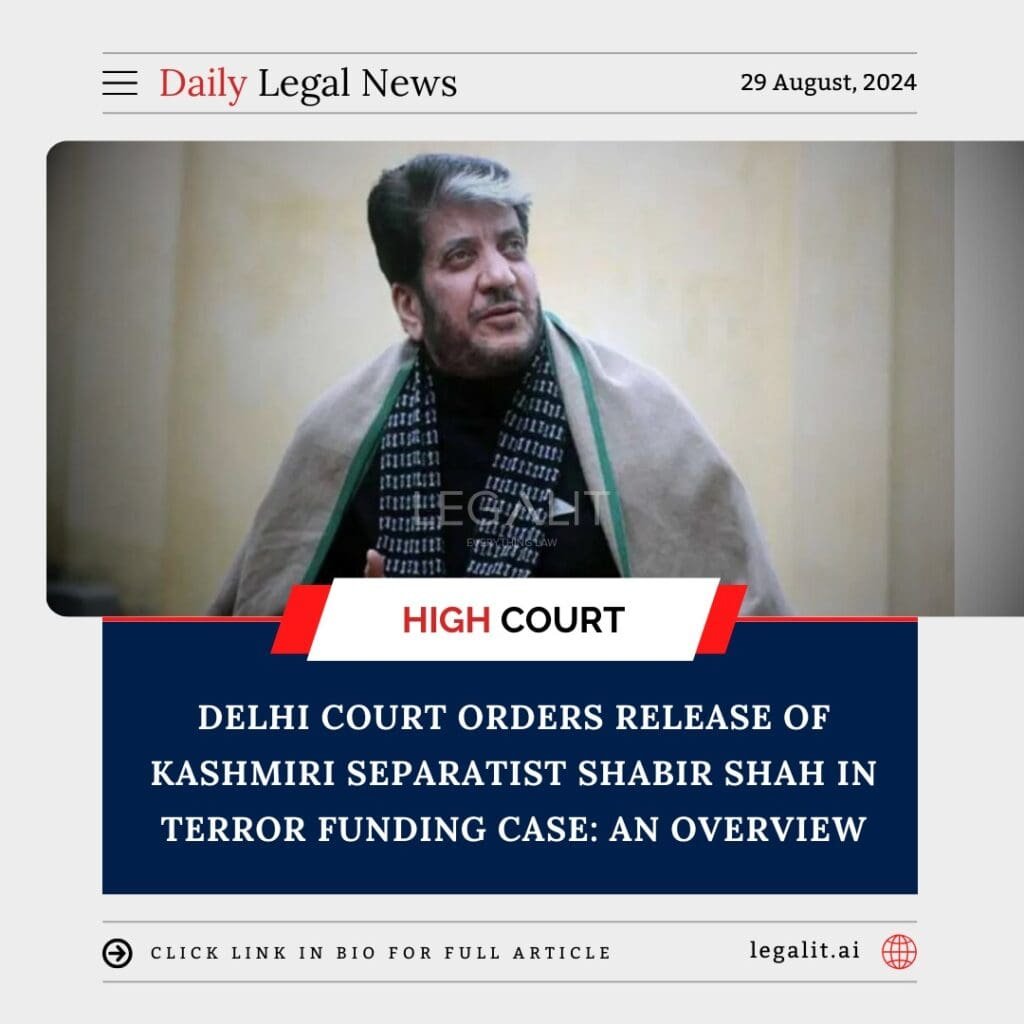
In a recent decision, a Delhi court has ordered the release of Kashmiri separatist leader Shabir Shah from custody in a high-profile terror funding case. This decision has sparked considerable discussion and scrutiny, given the gravity of the charges involved and Shah’s prominence in the separatist movement. Here’s an in-depth look at why the court ruled in Shah’s favor and the implications of this order.
Background of the Case:
- Shabir Shah’s Profile:
Shabir Shah is a well-known Kashmiri separatist leader who has been at the forefront of the movement advocating for the region’s autonomy. He has faced multiple charges over the years, including those related to funding terrorism. His case has been a subject of intense legal and political debate. - Terror Funding Allegations:
Shah was accused of being involved in financing terror activities in Jammu and Kashmir. The charges were part of a broader investigation into various individuals and entities allegedly supporting separatist and militant activities in the region.
Reasons for the Court’s Decision:
- Legal Grounds for Release:
The Delhi court’s decision to release Shabir Shah was influenced by specific legal considerations. The court examined the evidence presented by the prosecution and determined that the grounds for Shah’s continued detention did not meet the requisite legal standards. The ruling was based on the legal principle that an accused can only be held if there is substantial evidence warranting continued custody. - Bail Conditions and Due Process:
The court’s order for Shah’s release often involves conditions such as bail bonds, sureties, and restrictions on travel. These conditions ensure that while Shah is released from custody, he remains under legal supervision and is subject to further legal proceedings. - Evidence and Prosecution Arguments:
The court may have found deficiencies in the prosecution’s evidence or arguments, impacting the decision to release Shah. Legal decisions are typically based on a comprehensive review of the evidence, adherence to legal standards, and the principles of justice.
Implications of the Release:
- Legal and Political Reactions:
The release of Shabir Shah is likely to elicit a range of reactions from both legal and political spheres. Supporters of Shah may view the decision as a victory for due process, while critics may express concerns about the impact on national security and the message it sends regarding separatist activities. - Impact on Ongoing Investigations:
Shah’s release does not necessarily end legal proceedings related to his case. Investigations and legal actions can continue, and the court’s decision might influence the direction and strategy of ongoing investigations. - Precedent for Similar Cases:
The decision may set a precedent for how similar cases are handled in the future, especially in terms of legal standards for detention and bail in cases involving terrorism and separatist activities.
Broader Context:
- Judicial Independence:
The ruling highlights the importance of judicial independence and adherence to legal principles. Courts are tasked with making decisions based on the law and evidence, irrespective of external pressures or political considerations. - Terrorism and Separatism in Jammu and Kashmir:
The case is part of the broader context of terrorism and separatism in Jammu and Kashmir. The region has long been a focal point of conflict, with ongoing debates about the legal and political approaches to addressing the issues.
Conclusion:
The Delhi court’s decision to order the release of Shabir Shah in the terror funding case reflects the complex interplay between legal standards, evidence, and judicial discretion. While the ruling has significant implications for Shah, the broader context of terrorism and separatism in Jammu and Kashmir continues to shape the legal and political landscape. As the case progresses, it will be essential to monitor how legal proceedings unfold and their impact on national security and justice.